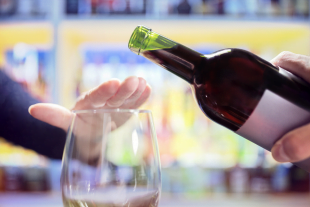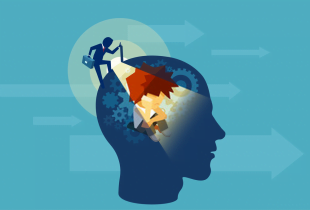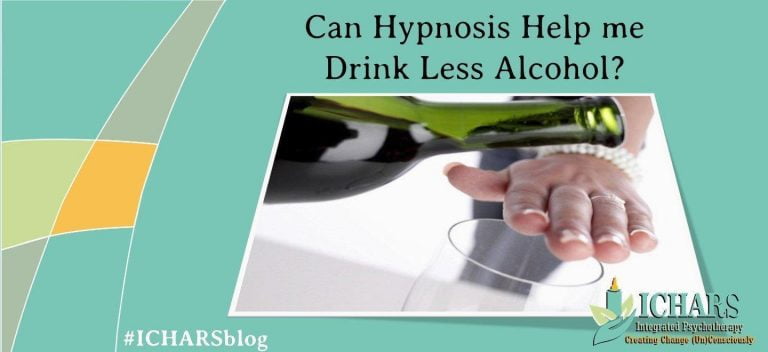Did you know that you can use Hypnosis for Alcohol Treatment?
Hypnotherapy can be used as a standalone technique or can be used in combination with other therapies or with other de-addiction programs for best results.
Before we get into how one can use hypnosis for alcohol treatment, let us look at the important question that most occasional drinkers ask themselves.
Do I Need to Drink Less Alcohol?

The biggest problem with alcohol is its wide availability and social acceptance.
However, many drinkers secretly worry that they drink too much. They think they need to quit drinking altogether because they are not able to drink in moderation.
Many clients tell me, “It is so frustrating to hear this. If I could, I would have done it by now! What makes it worse is when I am told I don’t have a strong enough willpower and therefore I am not able to control my drinking.”
While professional counselling can be helpful to some, the real problem is that many drinkers feel isolated, alone, and shamed by responses that do not give them any tools to help them drink less. They are often left with a feeling whether they have a “real” drinking problem, or not.
Hypnosis has been successfully used to help people achieve goals, quit smoking, lose weight, overcome phobias as well as reduce alcohol consumption.
Case Study on Alcohol
Here is Rahul’s story.
At the age of 18, Rahul realized his girlfriend was cheating on him and broke up with her. He was frustrated and angry. A friend suggested they get drunk and have a break-up party, so he could get some closure. Rahul tried vodka for the first time and within 10 minutes, he felt relaxed and at ease. Suddenly, he didn’t care so much about his ex-girlfriend.
Many years later, Rahul realized that drinking vodka was getting a little out of hand. Although he wasn’t a regular drinker, whenever he drank, he hit the bottle hard and this worried his family. Rahul was secretly worried too. But he just couldn’t ‘just have one or two vodkas!’ –– It was always at least half a bottle.
The trauma that Rahul experienced at 18 triggered an emotional urge of drinking too much whenever he felt unsafe. He felt slipping down the slope of alcoholism.
Rahul’s unconscious mind had developed a habit. To prevent feeling vulnerable and pain, it chose the closest fix and drove him to pick the bottle. In a split second, it found vodka! Unknown to Rahul, his unconscious mind was demanding vodka to soothe him.
Remember it is not about willpower! Rahul didn’t want to drink unhealthy quantities, it was his unconscious mind that had learned that alcohol was a good quick fix.
Can Hypnosis Help Rahul Drink Less Alcohol?
Many habitual drinkers, like Rahul, have found alcohol to be an easy and fast solution to find some reprieve from the anxieties and stresses of everyday life. The mind doesn’t like feeling anxious, scared or vulnerable. So, whenever the mind feels like life is too challenging, it will find ways to give that person an emotional quick fix.
For Rahul, vodka was the quick fix. For others, it can be sweet/fatty foods, cigarettes, chocolate or something else.
What is Hypnosis?

Hypnosis is a state of hyper-suggestibility where you are more accepting of suggestions that do not work consciously. Simply put, hypnosis is a state where you can align your conscious choices with your unconscious responses.
Your unconscious mind is that part of the mind that runs the involuntary bodily functions and stores all memories and habits. When the conscious decides that you need to reduce drinking, it will not happen unless the unconscious mind understands this request and confirms it as appropriate behaviour.
In other words:
Hypnosis is an excellent tool to communicate directly with the unconscious mind. Hypnosis can be used to identify the unconscious reasons underlying the unhealthy emotional conditioning to alcohol and to replace it with more logical and helpful choices.
Another important feature of hypnosis is that during hypnosis learning can occur without judgement.
How to use Hypnosis for Alcohol Treatment?
- A mental health practitioner trained in the art and science of Hypnotherapy will begin by helping the client consider the positive implication of quitting alcohol. While most clients are aware of the benefits, the awareness is generally at surface level and is not as vivid or as detailed as it needs to be.
We recommend using the SOFT SEA framework to help clients explore and describe the desired future with sensory specific details.
A sensory specific future provides the motivation that acts as the first step towards helping client quit alcohol.
- Since most addictions including alcohol may have started as a means to fulfill an unmet unconscious emotional need (also known as void), the next step would be to use hypnosis to identify the void.
Identification of void can be done through any de-layering technique like: corrective therapy or Self validation and integration therapy™. - Hypnotic suggestions or Void management (also known as the basement technique) can then be used to fulfill the unconscious void. In case the unmet emotional need is a result of traumatic past experiences, inner child or regression therapy can also be used to deal with the traumatic experiences.
- If the hypnotherapist is also trained in Neuro Linguistic Programming, next step would be to use anchoring. With anchoring, the therapist, in a hypnotic state, creates an aversion in client towards alcohol by conditioning the mind with negative association.
- The hypnotherapist (provided is also trained in NLP) can then use the N-Step Reframing or the parts integration process to take care of any unconscious positive intention that alcohol may be serving.This ensures that the chances of relapse is completely taken care of or is reduced to the minimum. Both these techniques also help is changing habit and automatic behavioural patterns.
- Finally the hypnotherapist will also help the client test that the therapy is successful by asking them to imagine the different scenarios where they were earlier not able to control their drinking. Once the tests are successful in a hypnotic state the client is ready to test things in their real life situations.
The biggest advantage of using hypnosis for alcohol treatment is that it takes care of the two major problems that most therapies struggle with:
- Relapses
- Symptom substitution (the client gives up alcohol but picks up another addiction)
Integrating other techniques with Hypnosis for Alcohol treatment
While techniques covered in standard hypnotherapy programs are good for alcohol treatment but integrating Hypnosis with other techniques like NLP, behavioural therapy and using an eclectic approach is a lot more effective and comprehensive.
If you are a therapist or psychologist and would like to learn more about integrating these techniques and mastering these skills, check out our Internationally accredited, integrated program titled “Cognitive Hypnotic Psychotherapy™”.
In case of severe addiction to alcohol, it is recommended that Cognitive Hypnotic Psychotherapy must be used in conjunction with rehabilitation treatment offered in de-addiction centers.
Cognitive Hypnotic Psychotherapy™ is a life-changing therapy that can help many drinkers or other compulsive consumers who want to break the unhealthy cycle of drinking alcohol or smoking or binge eating and replace it with more logical and helpful responses.
Once a drinker does not need alcohol to soothe emotional pain, their whole outlook will be brighter, they will feel more in control of life, and they can then drink alcohol without it becoming a compulsive behaviour.

